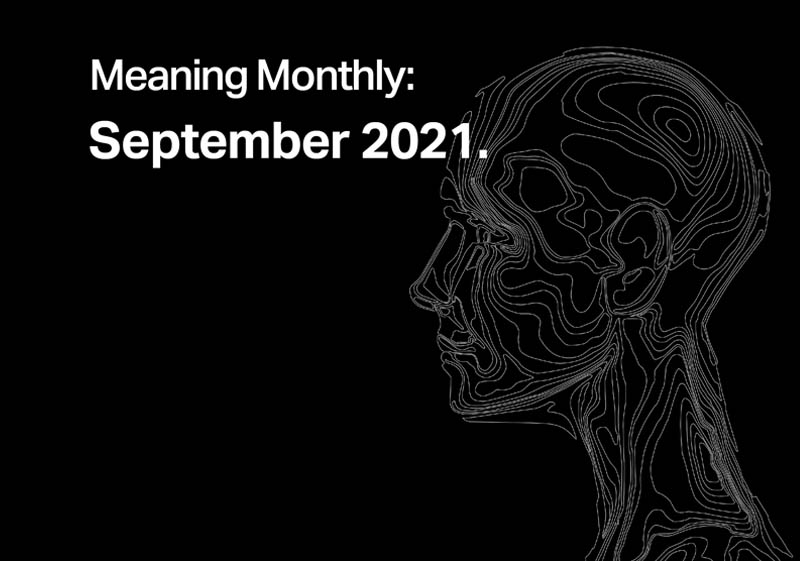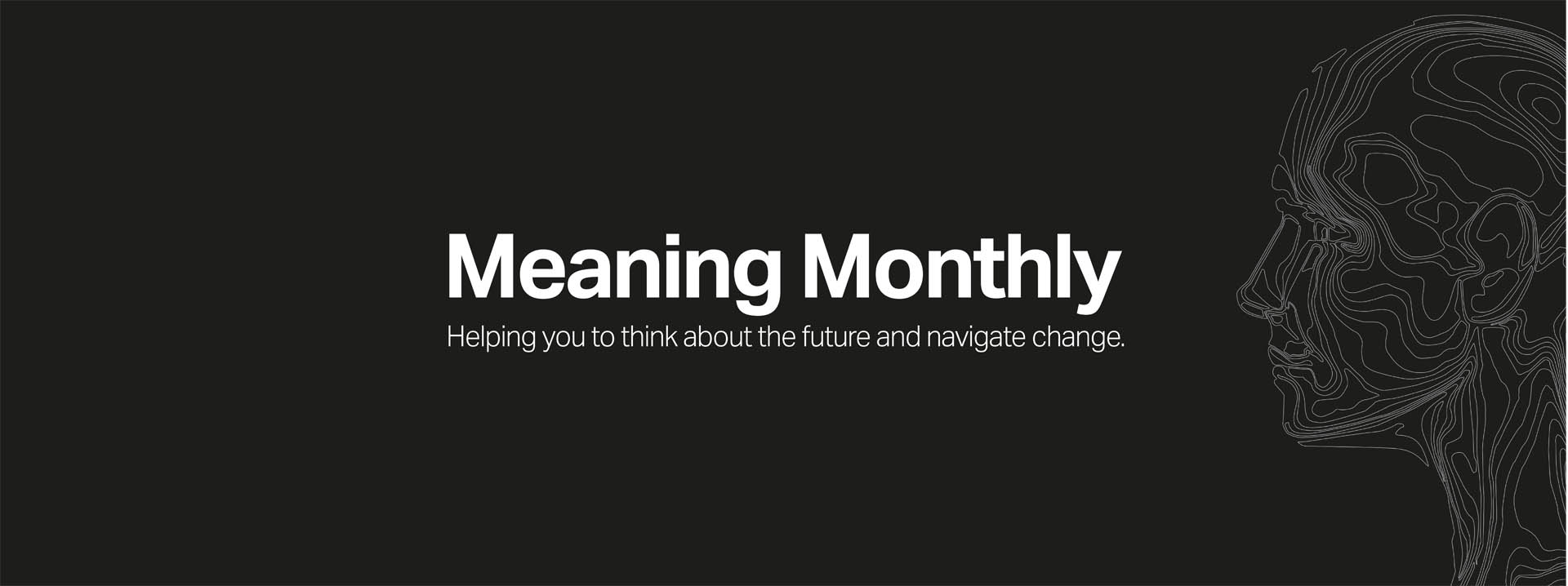
October 2021
Last month, we investigated different technologies designed to help us cope with our ageing society. This month, we’ve been looking at several ways in which people are trying to reverse the ageing process altogether.
We’ve also announced the winner of our annual Meaning Centred Design Awards. We invited students and graduates to submit projects which explore how we can better experience lockdowns in future. Scroll down to see the winner and a selection of finalists.
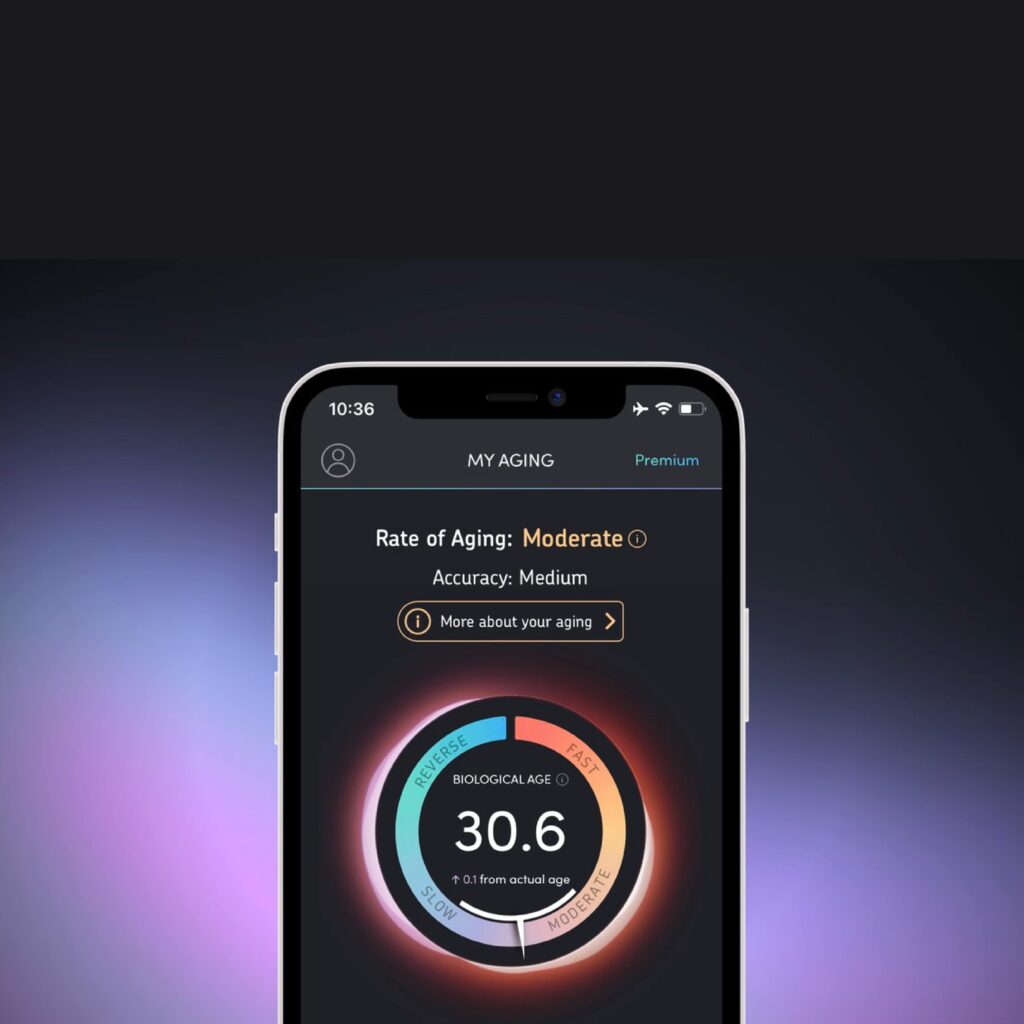
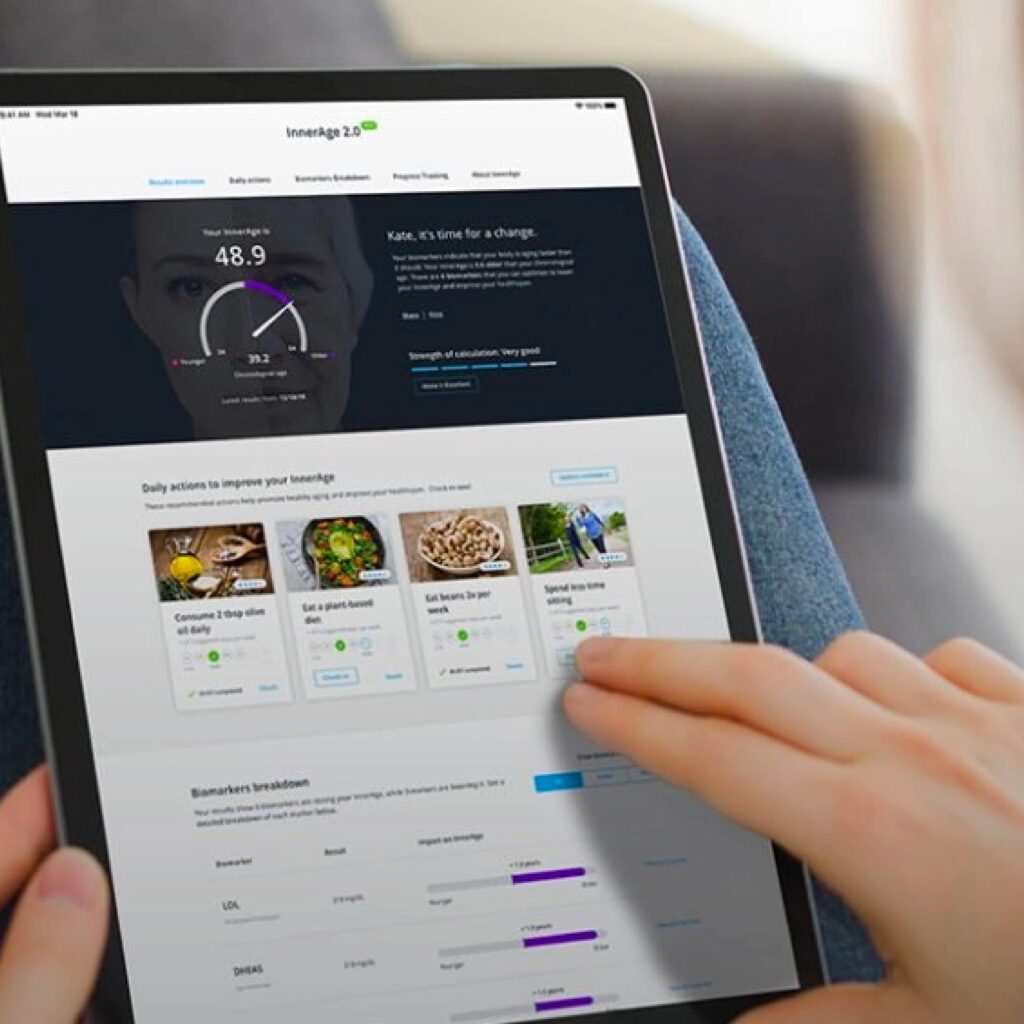
No longer viewed as an inevitable part of life, ageing is now being treated as a disease which can be cured. With multiple longevity technologies, procedures and medicines set to hit the market over the next decade, it is clear that our perception of ageing is going to change drastically.
Biomarkers are the measurements within our bodies such as blood pressure and heart rate which indicate health and performance. Apps like Humanity.Health and Inside Tracker use these biomarkers to assess our biological age, and advise on how to lower it to stay healthier for longer.
It is predicted that in future, biomarker trackers will no longer be external like watches and wearables, but instead start to operate under our skin and in our blood. This will allow them to spot diseases before they become a problem, something that will drastically change our healthcare systems.
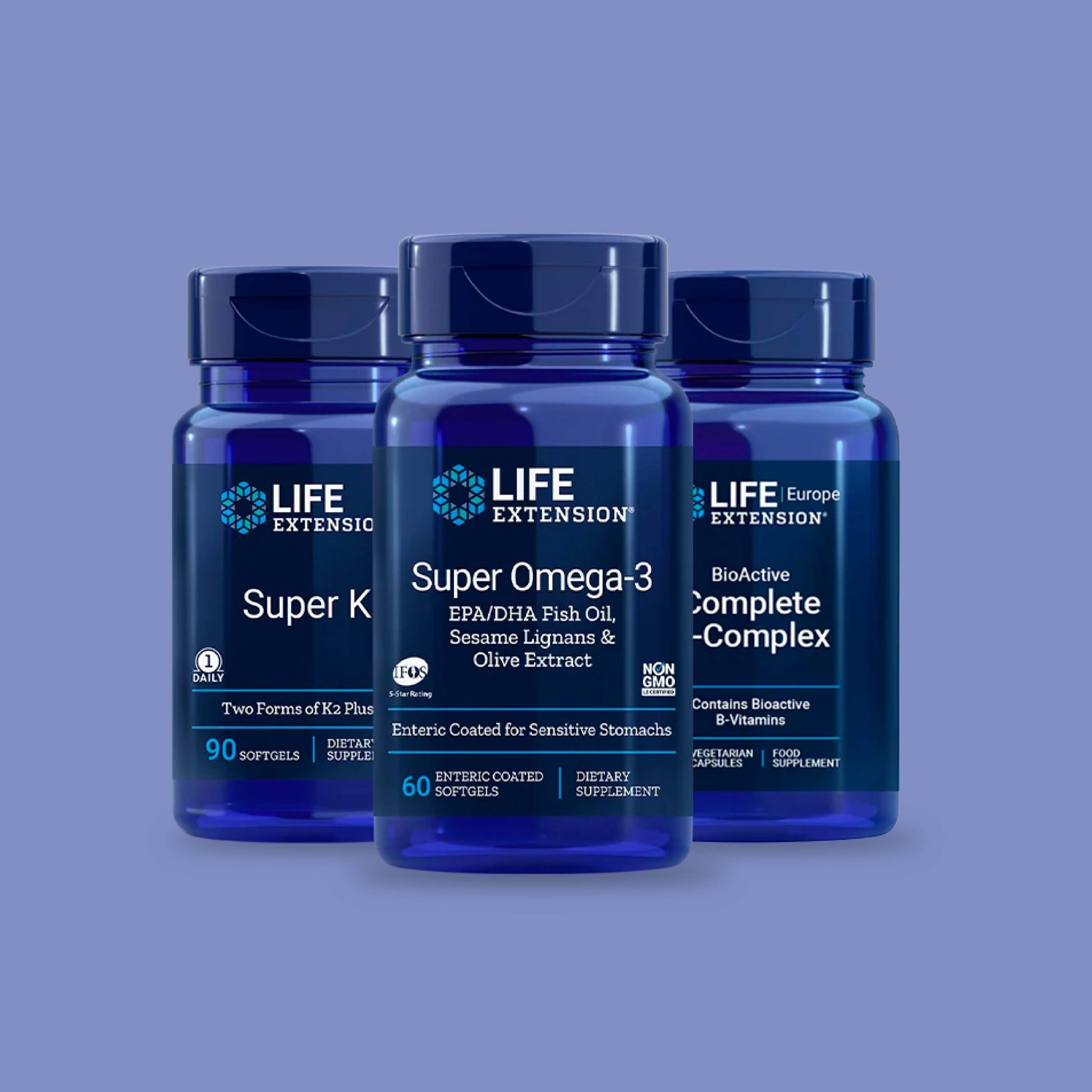
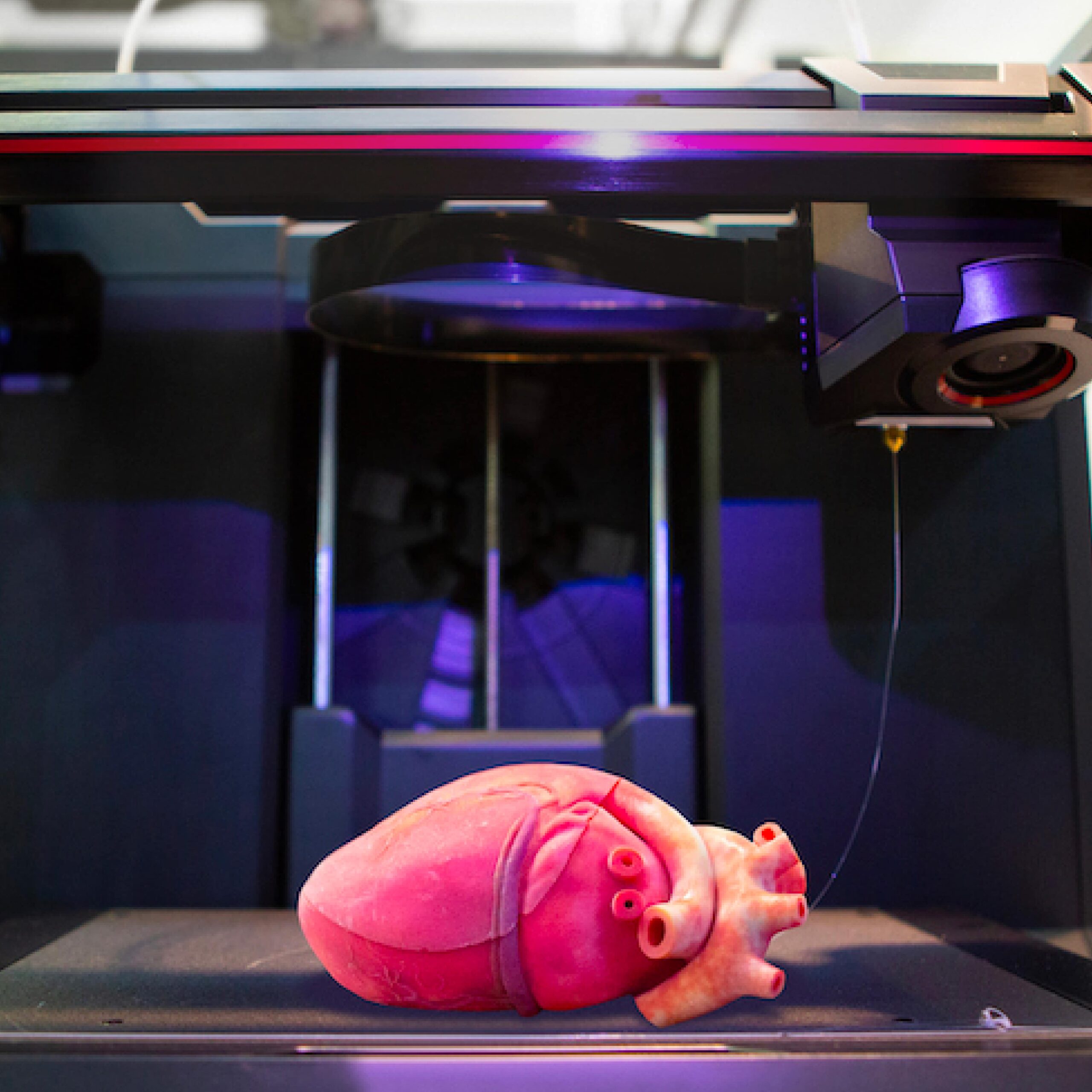
Longevity medicines and supplements such as Life Extension supplements hope to keep our bodies younger and healthier for longer. Many of the diseases associated with later life are a consequence of our cells ageing. These supplements are designed to counteract this, by keeping our cells young and functioning effectively for as long as possible.
Another method being developed to keep our bodies functioning correctly for longer is 3D bioprinting. This involves using 3D printing processes to print biomaterials and fabricate organs and tissues. These fabricated organs can then replace damaged organs, extending healthy life expectancies.
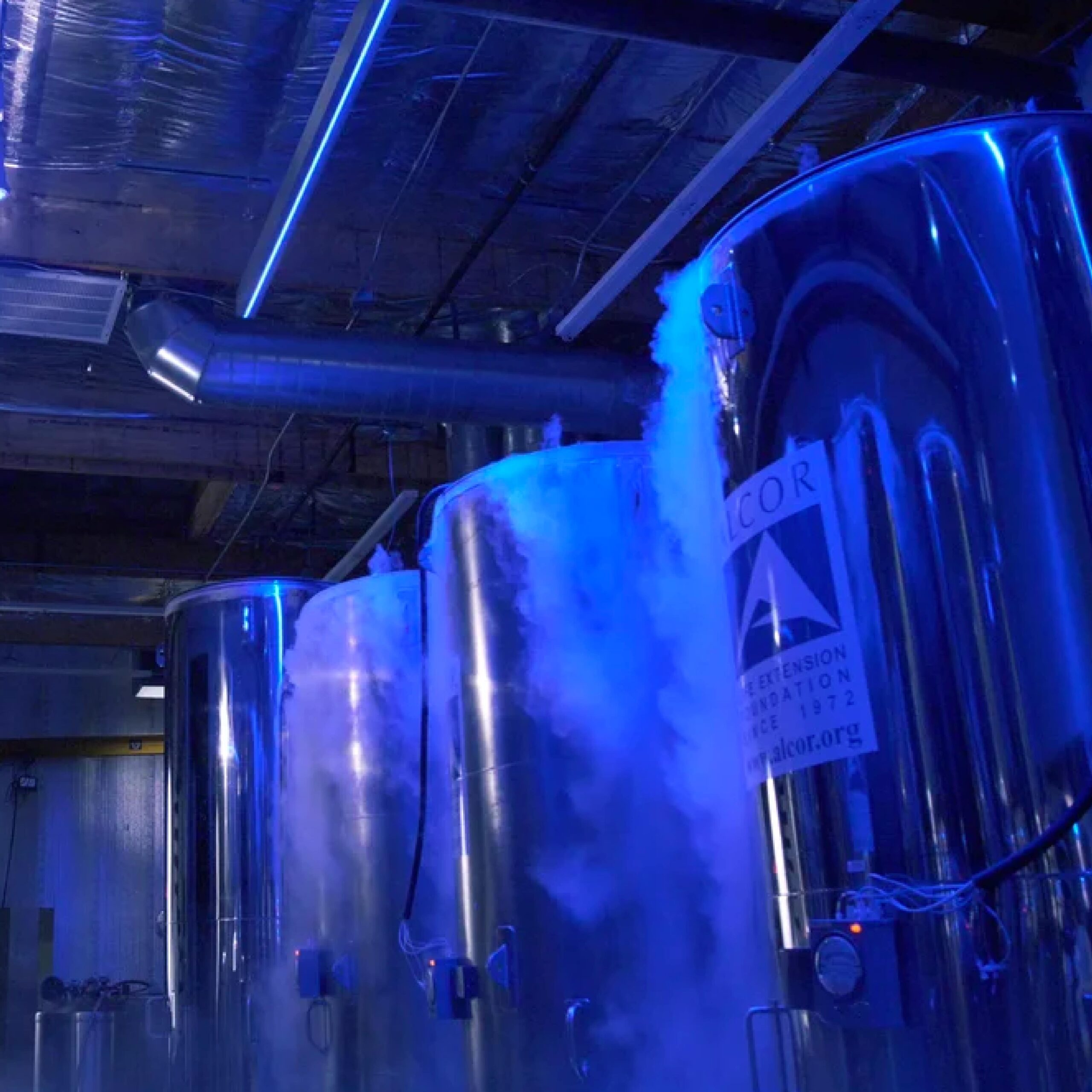
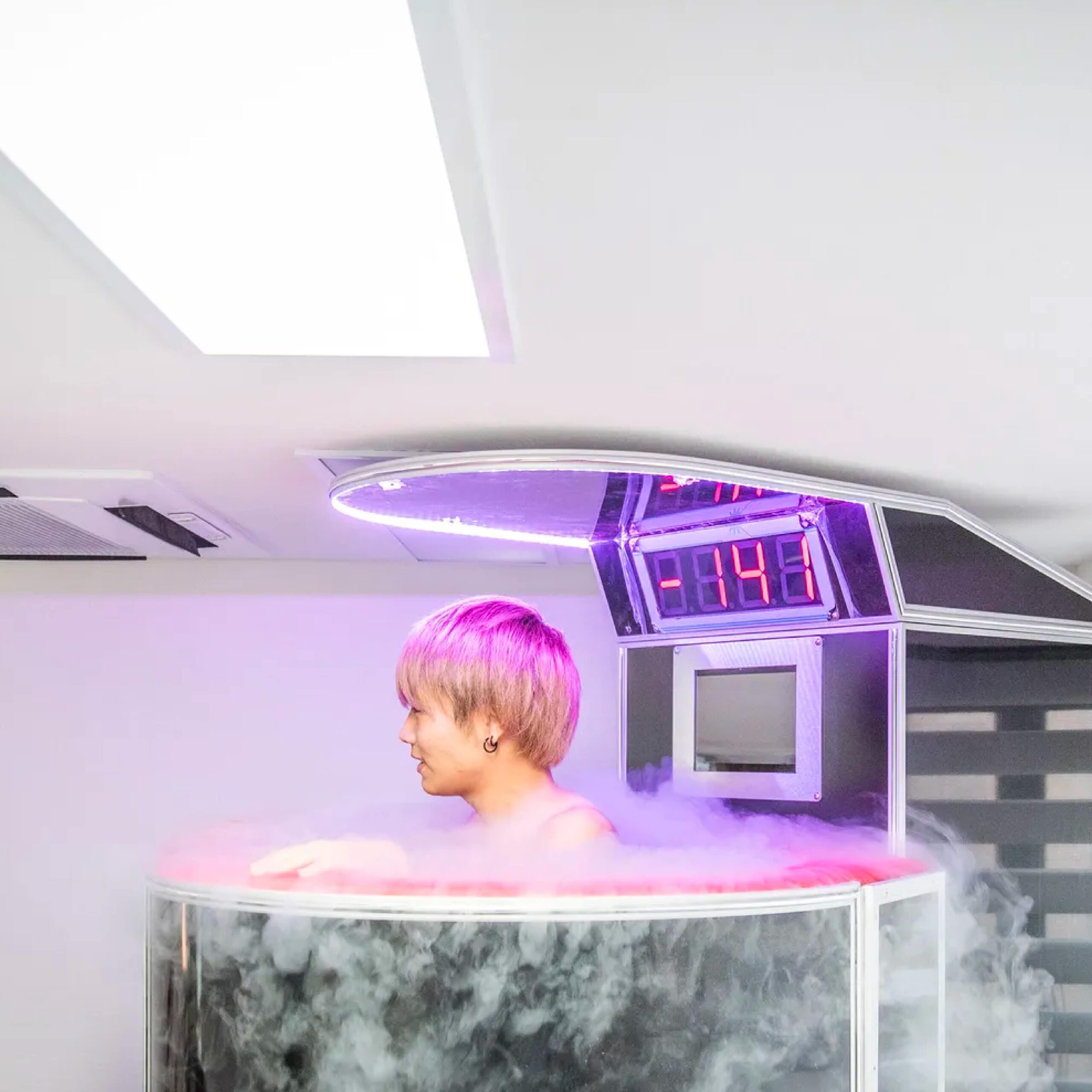
A more future-focused solution to evading death is cryonics. Cryonics is a process that allows an individual to be stored in an extremely low temperate tank after death, with the aim of being revived in years to come and brought back to life. Currently, the revival technology does not exist, and so this process is dependent on its inception.
Another anti-ageing process taking advantage of cryogenics is that of cryosaunas. Unlike cryonics, the cryosauna process is designed for the living. It enables individuals so submerge themselves in temperatures of -80C or lower to shock and stimulate the body. It is believed that cold therapy processes like this reduce inflammation in the body and improve circulation.
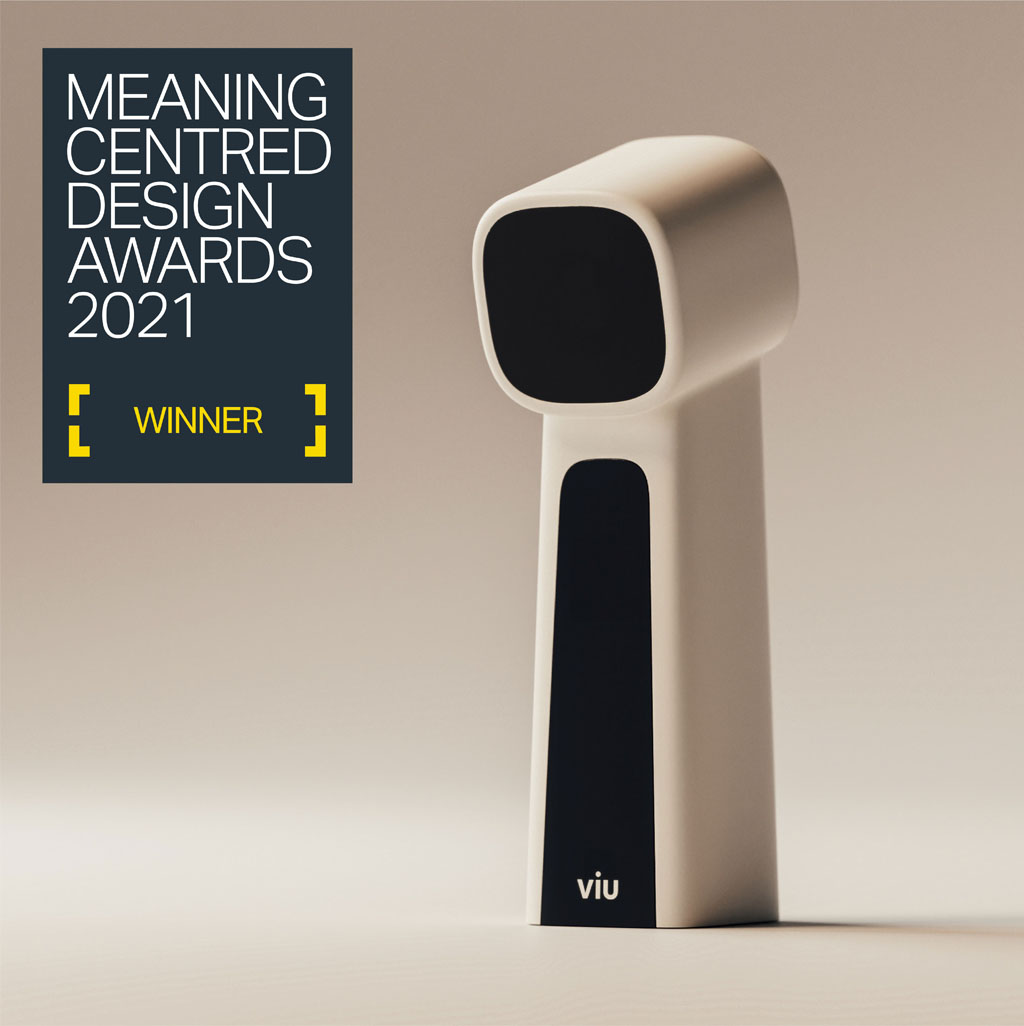
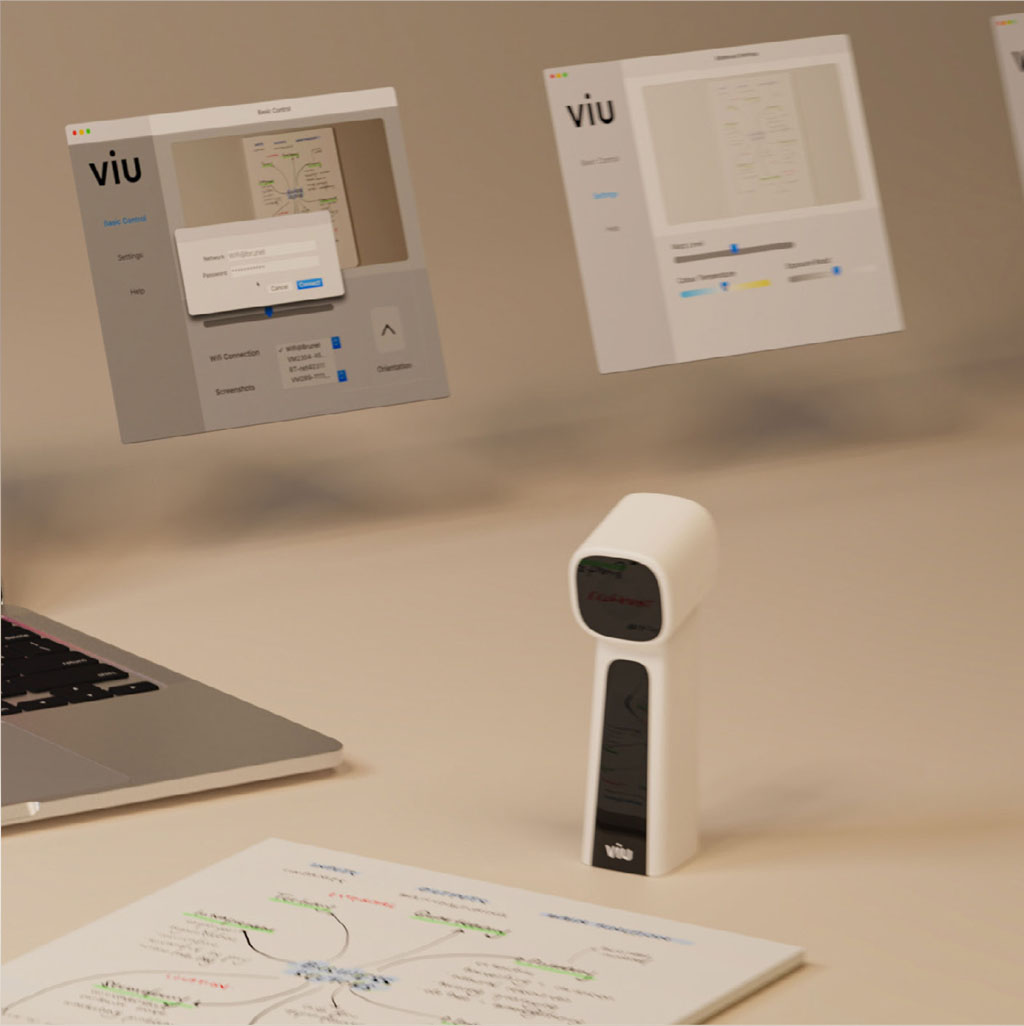
This year, the Meaning Centred Design Awards invited students and graduates to submit projects which explore how we can better experience lockdowns in future. We are delighted to announce that Viu by Alex D’Souza is the winner of the 2021 awards.
Remote working and learning has been a challenge. Viu hopes to bring fast, dynamic, collaborative working back into our work flow.
We selected Viu as the overall winner because it brings together several meanings that are pertinent to the lockdown home environment. It responds to distinct changes in the ways we work, adapting to the dominance of virtual environments and digital communication whilst still enabling physical and paper-based practices to be translated, included and celebrated.
It articulates a shift in the evolving role and design language of smart technology, prioritising the delivery of meaningful impact on the human experience, executed with a considered form that conveys friendliness, approachability and responsiveness, and able to sit comfortably in ‘home’, ‘work’ and hybrid spaces.
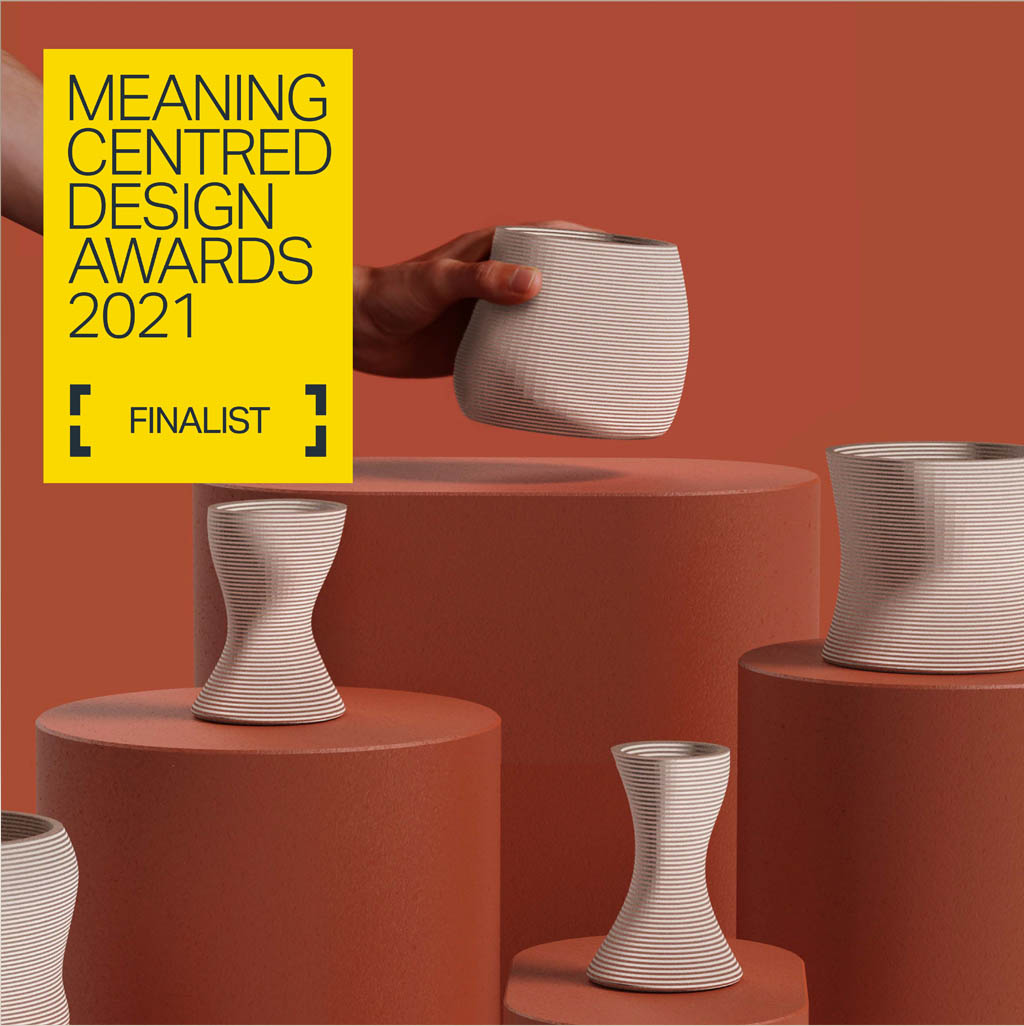
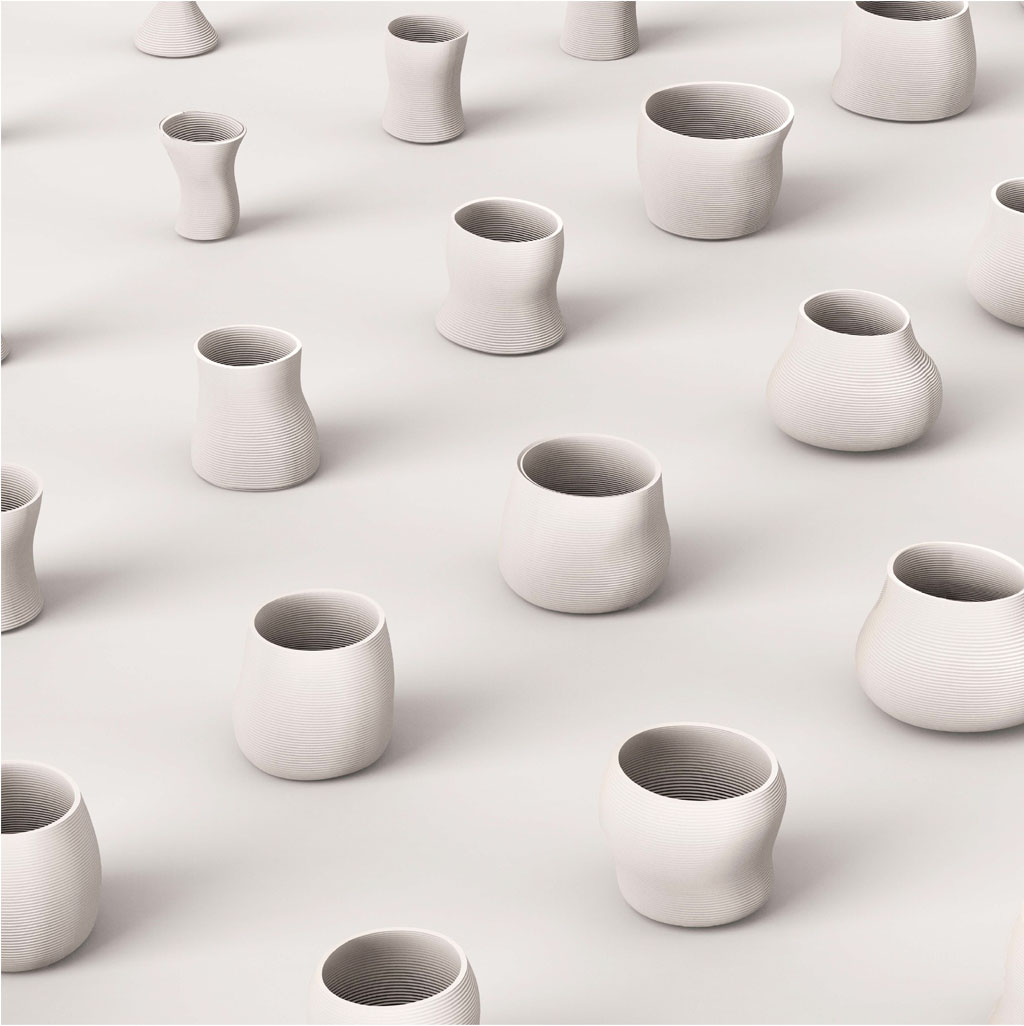
Finalist: Infinite Possibilities by Vanille Seigneul.
As data profiling and sequencing become more accepted, Infinite Possibilities hopes to bring a natural element to something predominantly scientific.
We selected this project as a finalist because it draws attention to the increasing consumer drivers for individualisation with food and drink consumption. We particularly appreciated how each user’s genetic code has a direct impact on the unique form and physicality of the drinking vessel - which retains an organic form despite being dictated by digital input (genetic code) and digital manufacturing techniques (3D printed ceramics).
This project offers an interesting commentary on how we as a society analyse, select and consume the nutrients and stimulants we put into our bodies. Rather than following the standardised advice for a ‘healthy diet’, it provides a way for people to consume portions of caffeinated drinks that are more accurately attuned to their genetic tolerance for caffeine.
The physicality and aesthetics of the forms generated create interesting objects that interact with several key meanings of home, such as nourishment and identify expression. It provides an interesting solution for how we all might better care for ourselves in our homes through future lockdown situations.
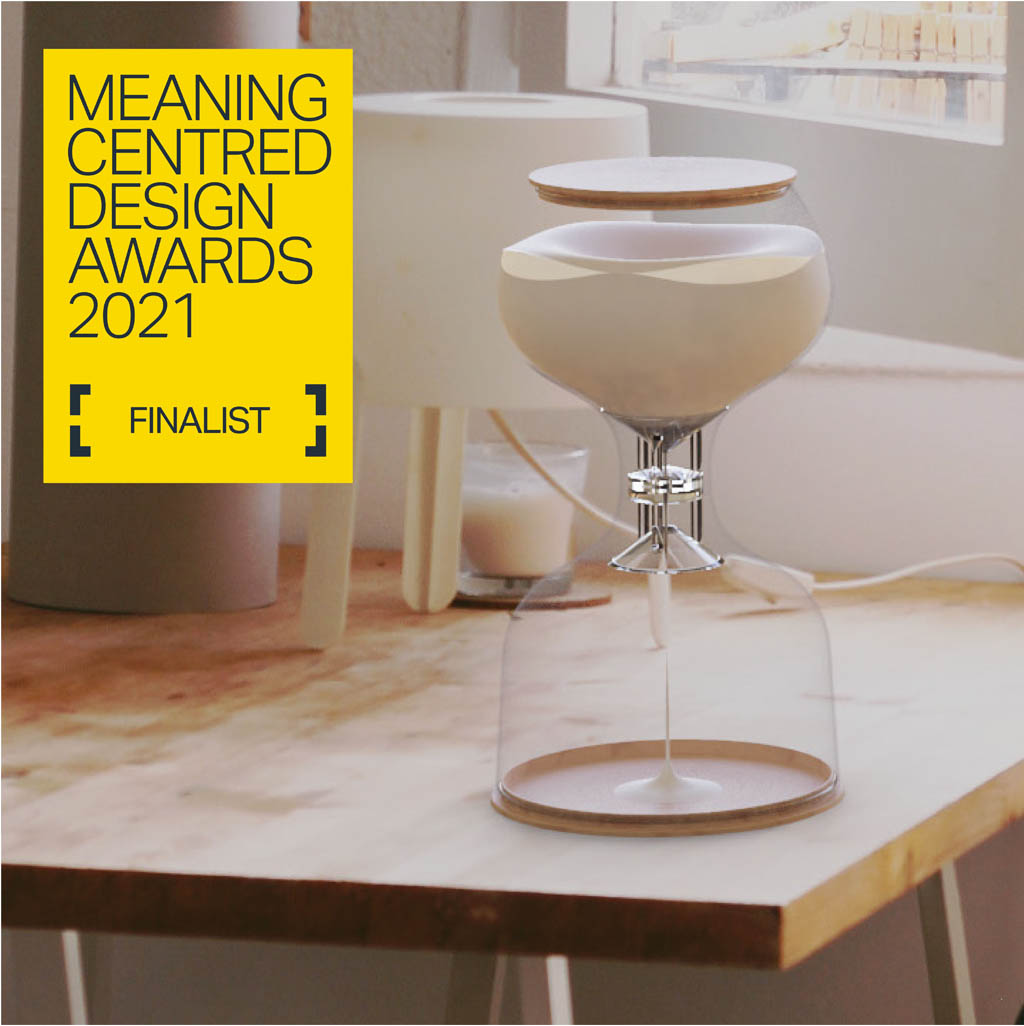
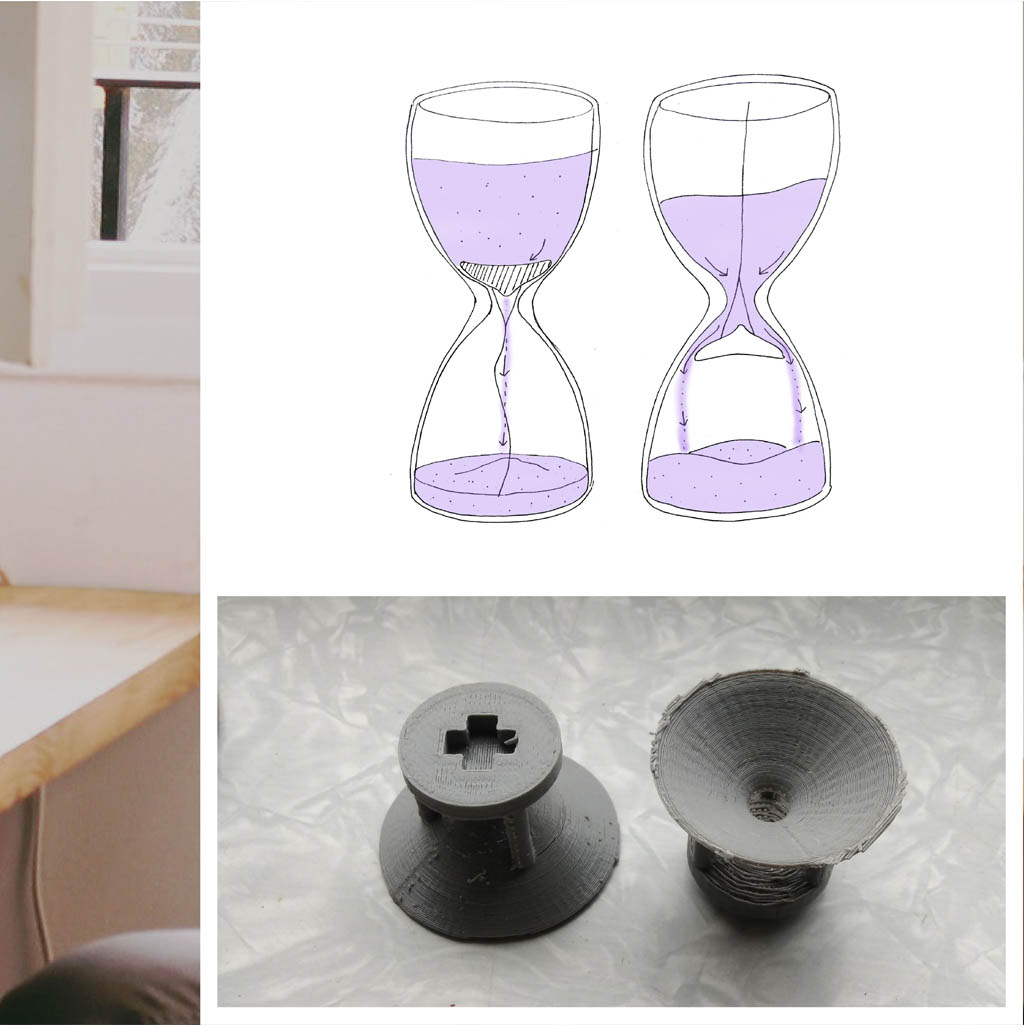
Finalist: Care Timer by Phalguni Khot
Using physical, visual cues rather than something on your phone, Care Timer helps carers to consciously take time to rest.
We selected Care Timer as a finalist because it makes a real and pertinent need very visual - the need for carers to consciously rest and restore. We particularly appreciated how the typical meaning and use of a sand timer was reinterpreted and used as something more active; a present and tangible reminder, which we feel could have more effective impact than an app or digital solution.
Care Timer symbolises a carer’s capacity to care, with the sand depleting over a set period of time to provide a visual cue for when rest is needed. The carer then turns the timer over to mark their conscious resting time. The mechanism enables sand to pass at a different speed, marking different periods of time depending of orientation - such as 2 hours for work and 15 minutes for rest.
The hugely important role carers play has become ever more apparent through the COVID-19 pandemic. Care Timer ensures that carers can continue to care for others by first caring for themselves - a way to ensure carers stay healthy and look after their wellbeing, especially in future lockdown situations.
Previous month
September 2021
Headlines in the UK have highlighted the country’s mounting social care crisis. Pre-pandemic, there were an estimated 120,000 social care vacancies, a figure that is estimated to climb to 170,000 by the end of the year.
In 2019, the UK Government invested £300 million in new care technologies, which hope to fulfil this gap and help people to live healthier, more independent lives. Last month at Recipe, we examined some emerging innovations to understand what we can expect from the future of age in place technology.
Meaning Centred Design Assessment
Meaning Centred Design helps your business understand how people think about, perceive and understand what you stand for and what you have to offer.
MCD Insights can be mapped and translated into new propositions with the potential to make your brand more distinctive, more engaging and ultimately more valuable.
This assessment is an interactive online tool that will help you quickly assess your current situation. It takes less than 5 minutes to compl
